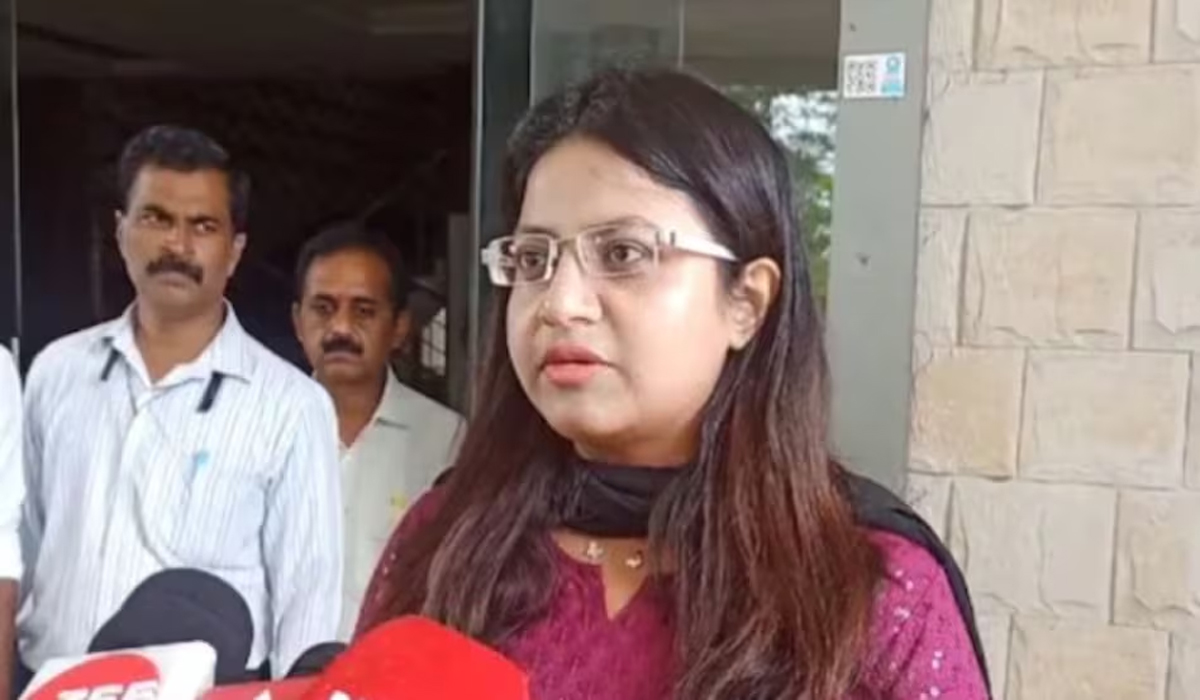
New Delhi: The Delhi High Court on Monday issued notices to the Delhi Police and the Union Public Service Commission (UPSC) regarding the anticipatory bail plea of suspended IAS officer Puja Khedkar.
The bench of Justice Subramonium Prasad, after reviewing the submissions, directed the investigating agency not to arrest Khedkar while the matter is under consideration, noting that an immediate arrest is not deemed necessary. A detailed hearing is scheduled for August 21.
The Delhi High Court observed that the trial court’s order denying Khedkar’s bail lacked substantial discussion, merely referencing the Public Prosecutor’s claim about the involvement of others. The High Court has instructed the police not to arrest Khedkar until Friday, pending further proceedings.
During the hearing, the UPSC argued that Khedkar is the “mastermind” behind the alleged scheme and that her actions would not have been possible without assistance from others, supporting their position that custodial interrogation is necessary.
Khedkar’s plea in the Delhi High Court follows the dismissal of her bail request by Delhi’s Patiala House Court last week, which found the allegations against her–related to falsifying identity for extra attempts in the civil services examination–serious and warranting thorough investigation.
The trial court judge, Additional Sessions Judge Devender Kumar Jangala, stated that custodial interrogation of the accused is required to uncover the entire conspiracy and establish the involvement of other individuals. The judge opined that this is not a case fit for exercising discretionary powers of anticipatory bail in favour of the accused.
The court noted that the applicant/accused is charged with offenses punishable under Sections 420, 468, 471, 120B IPC, 66D of the IT Act, and Sections 89/91 of the Rights of Persons with Disabilities Act, 2016. The applicant is accused of cheating the complainant by misrepresentation.
The complainant (UPSC), in furtherance of the misrepresentation, allegedly prepared various documents to support her claims, indicating that the conspiracy was premeditated and executed over several years. The court observed that the accused could not have executed the conspiracy without assistance from either an outsider or an insider.
The court also noted that the OBC (non-creamy layer) status and the classification of Khedkar as a person with multiple benchmark disabilities are under scrutiny and investigation.
The court emphasized that the UPSC, as a Constitutional body conducting exams for prestigious posts, must maintain the highest degree of transparency and fairness in its standard operating procedures. The court further observed that the UPSC’s SOP had been breached by the applicant/accused, necessitating an investigation into the failure of its scrutiny system. The case may represent only the “tip of the iceberg,” as others could potentially exploit the system as well.
To uphold the reputation, fairness, sanctity, and trust of aspirants and the general public, the court stressed the need for the UPSC to strengthen its SOP and reexamine recent recommendations to identify candidates who may have illegally obtained extra attempts, OBC benefits, or disability benefits to which they were not entitled.
The investigating agency has been directed to widen the scope of its investigation to include recent candidates who may have similarly exploited the system and to determine whether any insiders from the UPSC were involved in helping the applicant achieve her illegal goals.
Recently, the Delhi High Court granted Puja Khedkar, a former probationary IAS officer, the liberty to approach the appropriate forum to challenge the cancellation of her candidature. Meanwhile, the UPSC has informed the court that it will provide Khedkar with the order canceling her candidature within two days.
